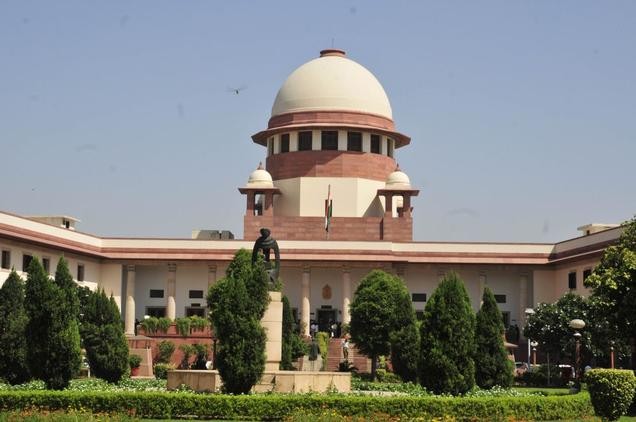
New Delhi, March 24 (IANS) The Supreme Court, which on Tuesday struck down Section 66 A of the Information Technology Act, said expressions such as "grossly offensive" or "menacing" in it were vague and nebulous in meaning, and there were no manageable standards by which a person can be held to have committed an offence.
"Quite apart from this, as has been pointed out above, every expression used is nebulous in meaning. What may be offensive to one may not be offensive to another. What may cause annoyance or inconvenience to one may not cause annoyance or inconvenience to another," said a bench of Justice J. Chelameswar and Justice Rohinton Fali Nariman in their judgment.
The court said that use of word "persistently" for repeated sending of message is "completely imprecise", and wondered what would constitute "persistently" - sending a message three times or eight times before it could be described as persistent.
"There is no demarcating line conveyed by any of these expressions - and that is what renders the section unconstitutionally vague," the verdict said.
Not accepting the government's contention that expressions used in the section could be incapable of any precise definition but not constitutionally vulnerable due to this, the court noted the two opposing conclusions that could be reached in dealing with vague and nebulous expressions, citing two British judgments where on the same facts, judges arrived at opposite decisions.
"If judicially trained minds can come to diametrically opposite conclusions on the same set of facts, it is obvious that expressions such as 'grossly offensive' or 'menacing' are so vague that there is no manageable standard by which a person can be said to have committed an offence or not to have committed an offence," it held, terming the expressions used in Section 66A "completely open-ended and undefined".
None of the expressions used in Section 66A - not even "criminal intimidation" with the act's definition clause - not saying that the words and expressions defined in the Indian Penal Code will apply here.
Thus, "authorities who are to enforce Section 66A have absolutely no manageable standard by which to book a person for an offence under Section 66A".
"This being the case, having regard also to the two English precedents, it is clear that Section 66A is unconstitutionally vague," the verdict said.
Time will tell what decision the government takes on the lockdown on the deteriorating condition
AQI Delhi: The amount of pollution in Delhi-NCR is not showing any signs of reduction despite sev
While talking to students and teachers in America, the Leader of the Opposition in Lok Sabha and
Who is Justice Sanjiv Khanna who will replace DY Chandrachud as Chief Justice today?
Justice Sanjiv Khanna will be sworn in as the 51st Chief Justice of India (CJI) on Monday at a ce
Best Smartphones: Best Smartphones under 20 thousand rupees
Smartphones Under 20,000: Smartphones are available in the market in many ranges according to dif
Citizenship Amendment Act: The petitions filed against the Citizenship Amendment Act will be hear
Salazar is included in the list of big hit films of the year 2023. This film, which was released
Ukraine crisis: Can India break defense ties with Russia?
After Russia invades Ukraine, the old relations between India and Russia are in discussion again,
The second day of the IPL 2022 Mega Auction continues in Bengaluru. Kolkata Knight Riders (KKR) o
Many cases of slow overrate are coming to the fore in IPL 2025. In the latest case, Rajasthan Roy